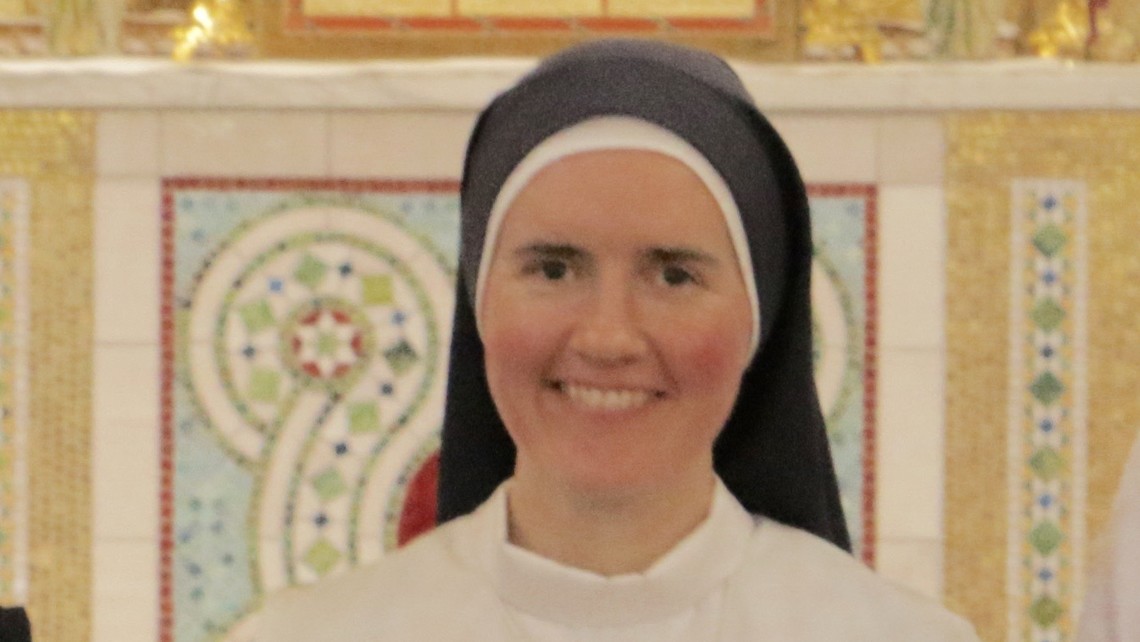
We come now to consider the prayers of the Offertory of the Holy Mass. At this part of the Holy Mass, the prayers offered in the Extraordinary Form differ significantly from those offered in the Ordinary Form. In the Ordinary Form, the priest offers the unleavened bread to God with the words, “Blessed are You, Lord God of all creation. Through Your goodness we have this bread to offer, which earth has given and human hands have made. It will become for us the bread of life.”
In the Extraordinary Form, the priest prays: “Accept, O Holy Father, almighty and eternal God, this immaculate host, which I, Your unworthy servant, offer to You, my living and true God, for my own countless sins, offences, and negligences, and for all here present: as also for all faithful Christians, both living and dead; that it may be of avail for salvation both to me and to them unto life everlasting. Amen.”
Even though the consecration has not taken place yet, the priest no longer refers to the gifts as “bread” and “wine,” but rather as the “host” and “chalice,” because the offertory already anticipates the consecration. In this first offertory prayer, we are reminded, too, of the reason that our Blessed Lord, who is the “immaculate Host”(from the Latin word hostia which means “victim” “sacrifice”), suffered and died, namely, for “sins, offences and negligences” not only those of the past, but for my sins, offences and neglicences, and for those of all “living and dead.”
The Holy Mass is called the Holy Sacrifice of the Mass, because it is the Sacrifice of Calvary. Jesus did not sacrifice Himself for our salvation only at Calvary; He truly does so again and again at the Holy Mass. Archbishop Fulton Sheen reminds us: “What is important…is that we take the proper mental attitude toward the Mass, and remember this important fact, that the Sacrifice of the Cross is not something which happened nineteen hundred years ago. It is still happening. It is not something past like the signing of the Declaration of Independence; it is an abiding drama on which the curtain has not yet rung down….What happened there on the Cross that day is happening now in the Mass, with this difference: On the Cross the Savior was alone; in the Mass He is with us” (Calvary and the Mass).
As the priest offers the host, we do not hear the prayer he prays, so we can read the prayer in our missal and, in the silence of our own heart, offer ourselves, too. As the priest prays, “Accept Holy Father,” we mystically can unite our voice to his and ask God to accept us to, offering to Him our body, our soul, our works, our thoughts, and asking Him to accept these gifts and to sanctify them. We can place ourselves, all our needs, all our intentions, on the paten which the priest is raising up. We can offer to Our Lord all that we are, including everything in us that needs healing.
After the offering of the host, the priest pours the wine into the chalice. As he pours a few drops of water into the chalice, after he has poured wine into it, the priest offers the following prayer:
“O God, Who, in creating human nature, did wonderfully dignify it, and has still more wonderfully restored it, grant that, by the mystery of this water and wine, we may become partakers of His divine nature, who deigned to become partaker of our human nature, Jesus Christ our Lord, Your Son…” With Saint Elizabeth of the Trinity, a Carmelite mystic of the past century, we can imagine ourselves to be the drop of water being added to the wine and pray: “I lose myself in Him like a drop of water.” We do not lose ourselves in Him in the sense of losing our identity, but in the sense of becoming ever more fully conformed to Christ, which is our main aim in life!

